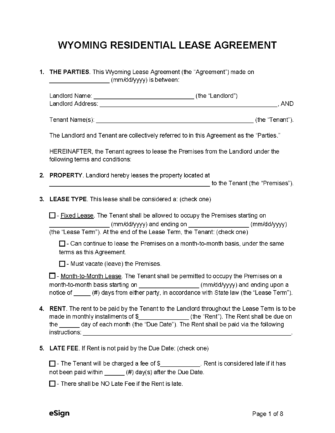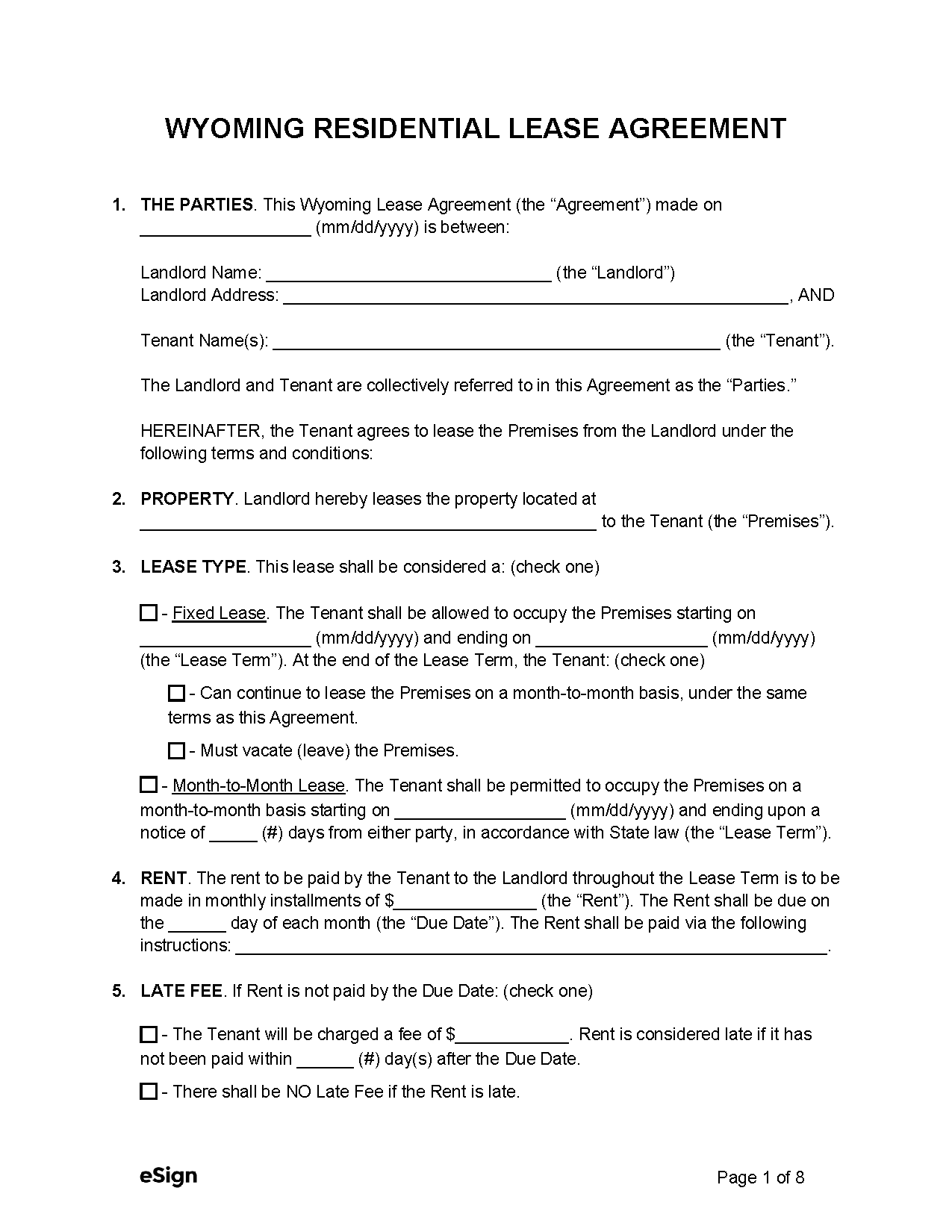
A Wyoming lease agreement is a contract between a landlord and a tenant that details the rules, rights, and obligations of both parties. Whether the lease agreement is used to rent commercial or residential property, the parties must agree on the length of the lease term, the rent amount, and all other conditions before signing the document.
A Wyoming lease agreement is a contract between a landlord and a tenant that details the rules, rights, and obligations of both parties. Whether the lease agreement is used to rent commercial or residential property, the parties must agree on the length of the lease term, the rent amount, and all other conditions before signing the document.
PDF Download
A Wyoming lease agreement is a contract between a landlord and a tenant that details the rules, rights, and obligations of both parties. Whether the lease agreement is used to rent commercial or residential property, the parties must agree on the length of the lease term, the rent amount, and all other conditions before signing the document.
4.7 | 7 Ratings Downloads: 1,056
Rental Application – A form used by landlords to collect personal information and the authorization for background checks on potential tenants.
Maximum Amount ($) – Wyoming does not have a maximum security deposit limit.
Collecting Interest – Interest doesn’t need to be collected on security deposits.
Returning to Tenant – Security deposits must be returned to tenants within 30 days after the tenancy expires or within 15 days of the tenant providing their new address, whichever is later. [3]
Itemized List Required? – Yes, an itemized list of damages and deductions must be provided at the time of returning the balance of the security deposit. [4]
Separate Bank Account? – No, state law does not set forth any requirement for keeping security deposits in a separate bank account.
General Access – State law does not establish a notice period for landlords entering a rental property, but tenants are not allowed to refuse access for necessary repairs, inspections, and showings. [5]
Immediate Access – Immediate access for emergencies is generally considered to be allowed without the tenant’s consent but the statutes don’t specifically mention it.
Grace Period – State statutes do not specify a rent grace period for tenants.
Maximum Late Fee ($) – There is no maximum late fee amount set by Wyoming law.
Bad Check (NSF) Fee – A fee of $30 may be charged by the landlord if a tenant’s rent check bounces. [6]
Withholding Rent – Withholding rent is not a legal remedy for tenants; a tenant’s remedy due to a landlord’s failure to comply with their obligations is to send a notice and, if the issue isn’t fixed, start a civil action in court. [7]
Non-Payment of Rent – A 3-day notice to pay or quit can be served on a tenant who is late on their rent payment. [8]
Non-Compliance – When a tenant fails to comply with the lease terms, the landlord can deliver a 3-day notice to quit (with or without the option to remedy the violation). [9]
Lockouts – Landlords preventing tenants from accessing their rental property is not covered by state law.
Leaving Before the End Date – Tenants abandoning rental property is not covered by state statutes.
Month-to-Month – There is no notice period mentioned in state statutes for terminating a monthly tenancy; 30 days is generally considered reasonable.
Unclaimed Property – Personal property left by the tenant after tenancy is considered abandoned and can be disposed of by the landlord. Any valuable property, however, can only be disposed of if the tenant does not claim the property within seven days after the landlord sends written notice. [10]